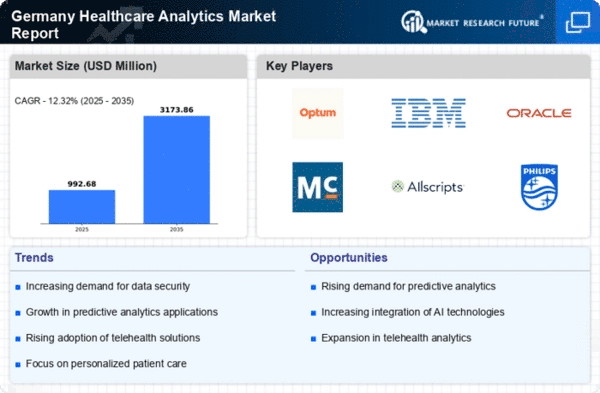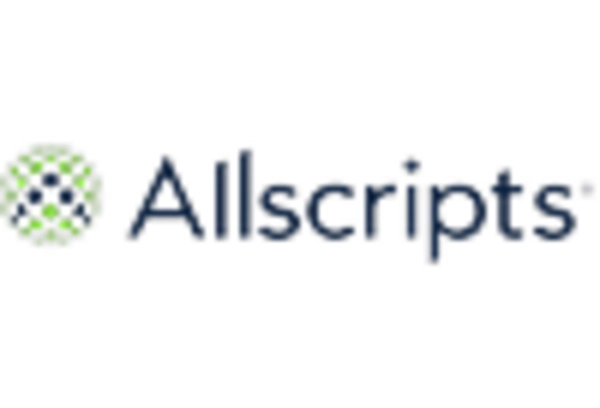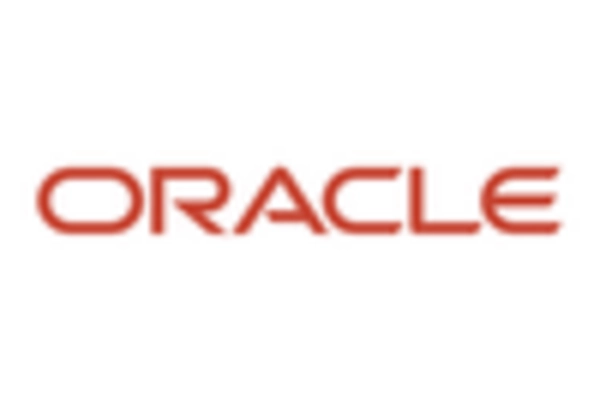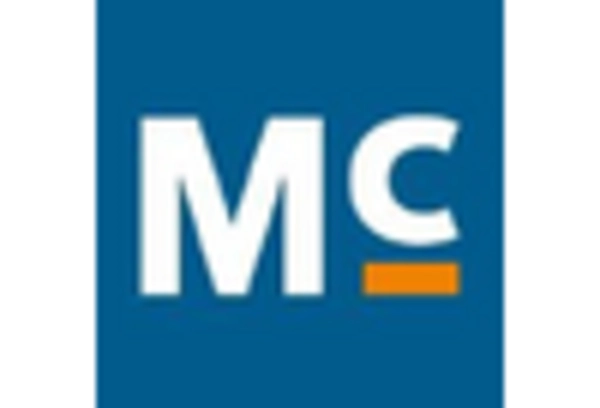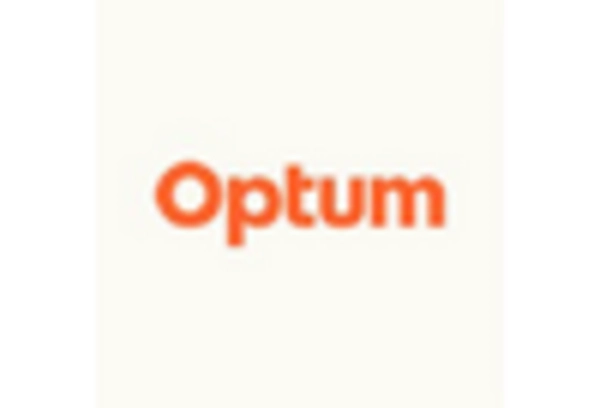Government Initiatives and Funding
Government initiatives in Germany are playing a crucial role in shaping the healthcare analytics market. The German government has allocated substantial funding to enhance digital health infrastructure, which includes investments in analytics capabilities. For instance, the Digital Healthcare Act aims to promote the use of digital health applications, thereby increasing the adoption of analytics tools among healthcare providers. This initiative is expected to boost the market by facilitating access to advanced analytics solutions. Furthermore, public funding for research and development in healthcare analytics is likely to foster innovation and improve data-driven decision-making processes. As a result, government support is a pivotal driver, encouraging healthcare organizations to invest in analytics technologies that can lead to better patient outcomes and operational efficiencies.
Rising Demand for Predictive Analytics
The healthcare analytics market in Germany is experiencing a notable increase in demand for predictive analytics. This trend is driven by the need for healthcare providers to anticipate patient outcomes and optimize resource allocation. According to recent data, predictive analytics can enhance patient care by up to 30%, leading to improved operational efficiency. As healthcare organizations seek to reduce costs while maintaining high-quality care, the integration of predictive analytics tools becomes essential. The ability to analyze historical data and forecast future trends allows healthcare professionals to make informed decisions, thereby enhancing the overall effectiveness of healthcare delivery. Consequently, the rising demand for predictive analytics is a significant driver in the healthcare analytics market, as stakeholders recognize its potential to transform patient management and operational strategies.
Growing Emphasis on Patient-Centric Care
The healthcare analytics market in Germany increasingly reflects the growing emphasis on patient-centric care.. Healthcare providers are shifting their focus towards personalized treatment plans that cater to individual patient needs. Analytics tools enable the collection and analysis of patient data, which can enhance the customization of care. This shift is reflected in the market, where the demand for solutions that support patient engagement and satisfaction is on the rise. By leveraging analytics, healthcare organizations can identify trends in patient preferences and outcomes, leading to improved service delivery. The emphasis on patient-centric care is likely to drive the adoption of analytics solutions, as providers seek to enhance the patient experience and improve overall health outcomes.
Increased Focus on Operational Efficiency
The healthcare analytics market in Germany reflects an increased focus on operational efficiency among healthcare providers.. Organizations are under pressure to reduce costs while improving service quality, leading to a heightened interest in analytics solutions that can streamline operations. By utilizing analytics, healthcare providers can identify inefficiencies in workflows, optimize resource allocation, and enhance patient throughput. Recent studies indicate that implementing analytics-driven strategies can lead to cost reductions of up to 20%. As healthcare organizations seek to improve their bottom line and deliver better patient care, the emphasis on operational efficiency is likely to drive the adoption of analytics tools. This focus on efficiency not only benefits healthcare providers but also contributes to improved patient outcomes, making it a key driver in the healthcare analytics market.
Advancements in Data Integration Technologies
Advancements in data integration technologies are significantly impacting the healthcare analytics market in Germany. The ability to consolidate data from various sources, such as electronic health records (EHRs), wearable devices, and clinical databases, is becoming increasingly important. These technologies facilitate comprehensive data analysis, enabling healthcare providers to gain insights into patient health trends and operational efficiencies. As organizations strive to create a unified view of patient data, the demand for sophisticated integration solutions is likely to grow. This trend is expected to enhance the effectiveness of analytics tools, allowing for more accurate predictions and better-informed decision-making. Consequently, advancements in data integration technologies serve as a vital driver for the healthcare analytics market, promoting a more data-driven approach to healthcare delivery.


